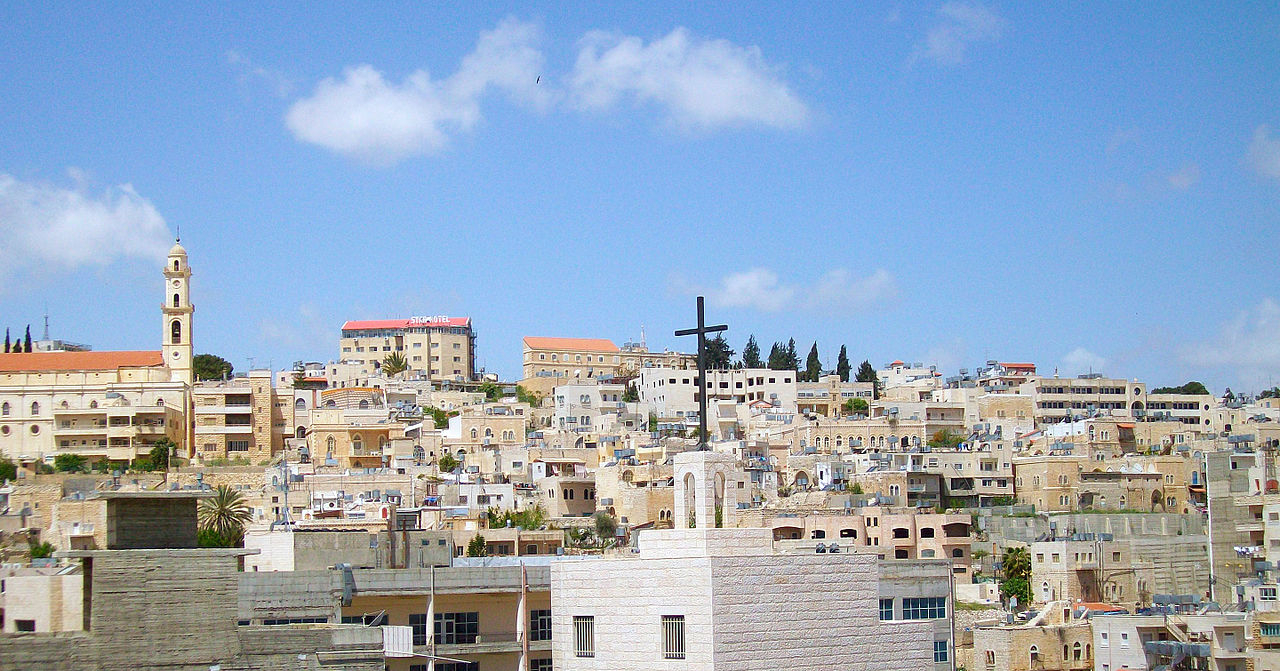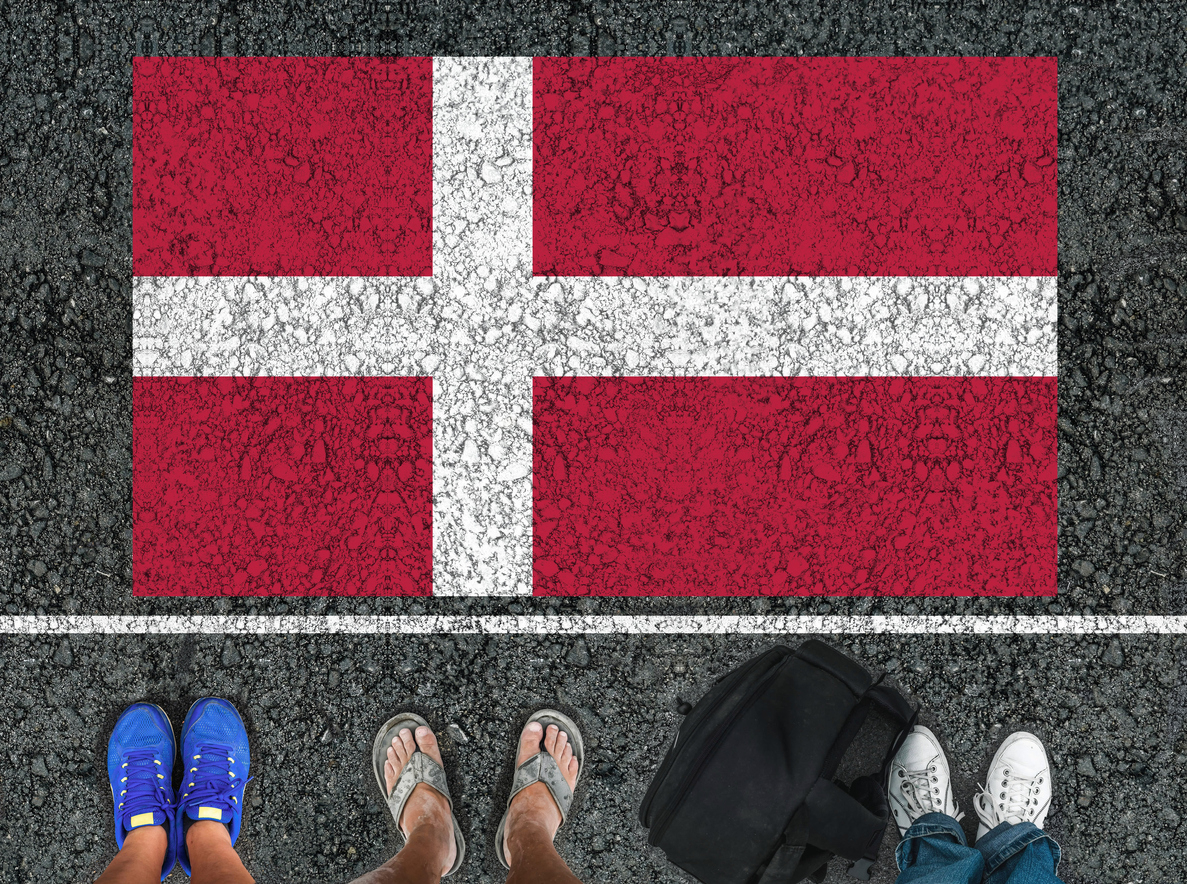In this mailing:
- Raymond Ibrahim: "Silent Night": Persecuted Palestinian Christians Kept Out of Sight
- Amir Taheri: Britain: Flushing Out the Corbynista
by Raymond Ibrahim • December 22, 2019 at 5:00 am
In short, Palestinian Christians are suffering from the same patterns of persecution — including church attacks, kidnappings and forced conversion — that their coreligionists suffer in other Muslim nations. The difference, however, is that the persecution of Palestinian Christians has "received no coverage in the Palestinian media."
"The only thing that interests the PA [Palestinian Authority] is that events of this kind not be leaked to the media. Fatah regularly exerts heavy pressure on Christians not to report the acts of violence and vandalism from which they frequently suffer, as such publicity could damage the PA's image..... Even less does the PA want to be depicted as a radical entity that persecutes religious minorities. That image could have negative repercussions for the massive international, and particularly European, aid the PA receives." — Dr. Edy Cohen, "The Persecution of Christians in the Palestinian Authority", Begin-Sadat Center, May 27, 2019.
The bread and butter of the PA and its supporters, particularly in the media, is to portray the Palestinians as victims of unjust aggression and discrimination from Israel. This narrative would be jeopardized if the international community learned that Palestinians are themselves persecuting fellow Palestinians — solely on account of religion.
"The systematic persecution of Christian Arabs living in Palestinian areas is being met with nearly total silence by the international community, human rights activists, the media and NGOs..." — Justus Reid Weiner, attorney, "Palestinian Christians: The plight of believers under Palestinian rule", International Christian Embassy, Jerusalem.

Christianity is on the verge of disappearing in the place of its birth, including Bethlehem (pictured). According to lawyer and scholar Justus Reid Weiner, "The systematic persecution of Christian Arabs living in Palestinian areas is being met with nearly total silence by the international community, human rights activists, the media and NGOs... In a society where Arab Christians have no voice and no protection it is no surprise that they are leaving." (Image source: Daniel Case/Wikimedia Commons)
"The moment they [Hamas] took control [of the Gaza Strip], they started persecuting us, ruining our churches and forcing Christians to convert to Islam."
Such are the recollections, reported recently, of Kamal Tarazi, a 60-year-old Christian man from Gaza, now living in the streets of Nazareth. Before fleeing, he tried to resist the Islamist takeover, including by calling on Muslims and Christians to unite against Hamas. As a result, "I was jailed several times. Do you know what a Hamas prison is? It is pure torture."
The report adds that "the Islamic group decided to keep him alive to avoid depicting themselves as persecutors of the local Christian population, something that could potentially anger the international community." Tarazi was eventually released, fled the region, returned, got imprisoned again, and fled again, permanently. "I am sure there are no more than 500 Christians left in Gaza," he offers, "and it is just part of the general trend."
by Amir Taheri • December 22, 2019 at 4:00 am
What the pundits ignore is that all those constituencies had already voted Conservative in 2016 when they voted for Brexit.
Looking beyond Brexit, one key feature of the election may well be the dramatic rejection by voters of the Labour Party and its current leader Jeremy Corbyn. The party's performance was the worst since the 1930s and, if opinion polls are to be trusted, its leader the most disliked since James Ramsay MacDonald, who headed a Labour government for nine months in 1924 before transforming himself into a turncoat.
The beauty of democracy is that nothing is irreversible. However, democracy needs a strong opposition. The sooner Corbyn and the Corbynista bow out, the better for British democracy.

Labour Party leader Jeremy Corbyn and his cohorts did all they could to destroy British social democracy. However, the beauty of democracy is that nothing is irreversible. But democracy needs a strong opposition. The sooner Corbyn and the Corbynista bow out, the better for British democracy. (Photo by Leon Neal/Getty Images)
The British Conservative Party's victory at last week's general election has been described variously as "an earthquake" and "a triumph." Because the party won it biggest parliamentary majority since the 1980s, the election may look like a triumph for its leader, Prime Minister Boris Johnson. However, if applied to the opposition Labour Party's performance, the label "earthquake" may also appear to be in order.
A closer examination of the results, additionally, may provide a more nuanced picture or at least a less pixelated one. One key feature commentators have focused on was the massive switch of many traditional Labour-supporting constituencies to the Conservatives. Pundits ask: How did people who had never voted Conservative decide to do so after generations of attachment to socialism?
by Judith Bergman • December 21, 2019 at 5:00 am
"Here my point is that Islam has never fully assimilated into any society and that Muslims have never fully adapted into non-Muslim cultures. With an increasing number of Muslims in the West, this will end in conflict." — Ahmed Akkari in his new report, "The loyalty conflict in the West – why Muslims are hard to integrate."
"As Islamists influence Western Muslim circles, Western political parties engage with them to win more votes, thus making unfortunate alliances with forces that really... condemn the established system...The dilemma is that by seeking Islamist votes they allow those who wish... Denmark to become Islamized to be strengthened... the same sort of dilemma as if one sought the votes of a neo-Nazi, fascist or Stalinist group." — Ahmed Akkari in his new report, "The loyalty conflict in the West – why Muslims are hard to integrate."
"Many mosques were formed to be a spiritual and religious space for believers, and not as places where violence, hatred and political agendas should dominate. Nevertheless, the leading mosques in Denmark are characterized exactly by a pseudo-Islamic influence under the control of small strong elites of Islamic leaders. In that world, influence, not numbers, counts, and therefore it is not possible to say that Islamism is weak, just because it only exists in one quarter of all mosques, which I estimate." — Ahmed Akkari in his new report, "The loyalty conflict in the West – why Muslims are hard to integrate."
Akkari's warning holds true not only for Denmark, but for most Western European countries. Is anyone listening?

(Image source: iStock)
In a recent survey conducted by the Danish Ministry of Foreigners and Integration (Udlændinge- og Integrationsministeriet), 48% of descendants of non-Western immigrants in Denmark said that they think it should be forbidden to criticize religion, according to Kristeligt Dagblad. Forty-two percent of immigrants who had lived in Denmark for three years agreed with the statement, while only 20% of ethnic Danes agreed with it.
The results of the survey came around the same time that a Danish think-tank, UNITOS -- where Danish politician Naser Khader is a board member -- published a report by former Islamist imam Ahmed Akkari, "The loyalty conflict in the West – why Muslims are hard to integrate."
|
|
|
|
No comments:
Post a Comment